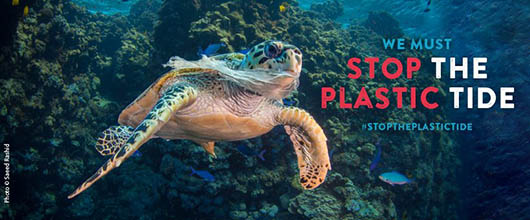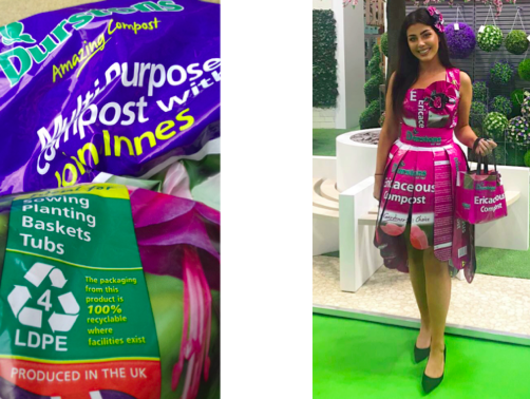As the World-wide issue of recycling plastic continues to dominate news reports, Somerset based Durston Garden Products Ltd reaches out to all organisations big or small to follow its lead and introduce 100% recyclable packaging.
“It may be a small gesture in the scale of things says company spokesperson”, Dan Durston, ”but it’s all the small things added together, that can really make a difference.
"In an ideal world plastic would be banned altogether, but until a realistic, cost-effective alternative can be found then surely we all have a duty to do what we can today, and that’s to reduce the devastating impact this mass-market material is having on our planet and in particular on our marine-life."

Plastic recycling is a process of recovering scrap or waste plastic and reprocessing the material into useful products. Since the vast majority of plastic is
non-biodegradable, recycling is part of a world-wide effort to reduce plastic in the waste stream and in particular the approximate eight million tons of plastic waste that enters the earth's oceans every year.
“So what can we do as organisations to help?” continues Dan. “Well in the first instance, do what we did here at Durstons and look at the plastic packaging you are currently using. Speak to the supplier/printer of that packaging and if it isn’t already compliant, then switch to a supplier/printer that can produce something that is. For us it was as simple as changing the printing process used on our compost sacks. There may be some cost involved but if you are thinking of changing your packaging anyway, even-better.”
Durston Garden Products is determined to keep the recycling message at the forefront of its publicity campaign which kicked-off at GLEE 2018. At the show they used a student actress/model dressed in a cleverly tailored outfit made from some of Durstons old packaging to get the message across. It certainly attracted a lot of attention and debate and linked nicely into the new packaging which the company also launched at the show.

Plastic recycling is one of those subjects that isn’t going to go away and it is therefore critical that we all pull-together and do something, however small, to reduce/phase out its usage. Think about, plastic carrier bags, and how quickly consumers started to re-use them or buy material alternatives once they discovered they would be charged for them.
“Something as simple as the way your packaging is printed, could be all it takes,” continues Dan. And, until an actual solution is found to replace this toxic material, surely we all have a duty; if not to ourselves, then to our children and grandchildren to do whatever we can to help, and at the very least ensure the packaging we all produce IS 100% recyclable.